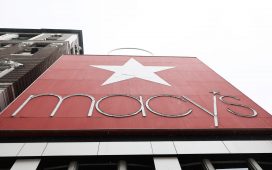While the familiar high street names pull down the shutters, artists, independent retailers, local makers, sustainability campaigners and community action groups are taking over abandoned retail spaces, with sustainability and inclusivity top of the agenda. The number of pop-ups has increased by 18% in the past year, although some represent big brands.
“I think at the core of it is a belief that the town centre is not dying,” artist Daniel Thompson told the Observer. Thompson founded the Empty Shops Network, which for nearly two decades has supported artists to take over empty shops for exhibitions and creative projects. Part of the aim, Thompson said, was to make art more accessible to new and diverse audiences.
“When you put contemporary art in an empty shop, you get people who would never set foot in a gallery,” said Thompson. “But when they wander into what used to be the greengrocers, they’re looking at art, they are thinking about art, and they are having an experience. That’s such a joy to see.
“We have tried a model of how to build town centres for 30 years and it didn’t work,” he added. “We’ve relied on the big anchors of the high street, such as Woolworths and Wilko, and let monoculture take over. Now we are seeing a proper ecology develop in town centres: a bit of civic use, social space, retail, residential, places to be in the evenings.”
In Plymouth, transforming a marginalised space into a thriving and accessible one is the driving force behind the Nudge Community Builders, which in the past five years has unlocked 25% of the empty buildings along the city’s rundown Union Street. From a street that was notorious for antisocial behaviour, the area is now host to civic conversations, street parties, local artist studios, community groups, and business startups, all for local people and often led by marginalised groups.
Working from the principle that “empty buildings are not OK”, Nudge invites local people to become shareholders so that they can purchase and repurpose abandoned properties, giving them a stake in how the street is evolving.
“As local residents ,we’re really passionate about how we host spaces that are really inclusive,” said Hannah Sloggett, co-director of Nudge Community Builders. “We’re interested in collective ownership of land and buildings, and how they are brought back into use in fun and interesting ways, with lasting local benefits.”
One such small business is Jabulani, caterers specialising in training local women to start their own food enterprises and share their culture. “It helps black and Asian women on their food journey,” said Sloggett. “From navigating environmental health, to the logistics of setting up a business, they are supporting women who may be marginalised in some way to overcome barriers.”
Nudge works with regional suppliers spending 53% within a mile of the street and 95% in the city so that its development supports Plymouth’s economy.
It’s an approach shared by the retailers in Sparks, where Sean McKay’s Ethical Gift Shop is busy with shoppers buying locally sourced products that make perfect stocking-fillers and birthday gifts. “My shop stocks 92 local suppliers,” said McKay proudly. “By Christmas, I want it to be 100.”
“The proportion of money that goes back into the local economy from our pop-ups is far greater than from the big shops,” said Tillie Peel, founder of the Pop-Up Club, which has supported independent retailers and local makers to set up in empty storefronts across England.
“People love coming into the shops and discovering new things,” she adds. “We have children getting excited about being creative. One teenage girl told me she loved our spaces, as they are ‘bougie and weird, like me!’”
Peel, whose background is in vintage clothing, is passionate about sustainability and sees the pop-up movement as helping to foster a reuse culture, a view shared by Sparks. Beyond the retail offering, Sparks connects visitors with advisers on energy use, and by creating welcoming spaces where people can engage in conversations about the climate crisis.
“The aim of Sparks was to provide easy and affordable ways for people to be able to play their part when it comes to achieving the sustainable development goals,” says project manager Jenny Foster. “We’re trying to show people easy ways to be part of the solution, as well as inspiring people with what shopping and the high street can look like”.
“It’s an approach that helps people see the place they live differently,” says Thompson, reflecting on the growth of the empty shops movement. “It gives a sense of pride. If we’re going to change the world, the first thing you have to be able to do is imagine a better world. And that imagination is what we let happen”.











